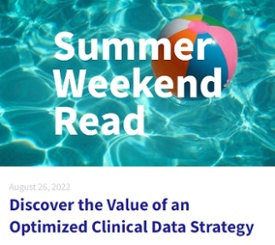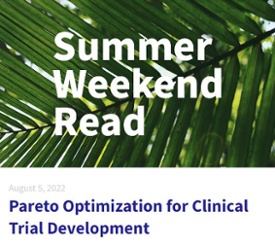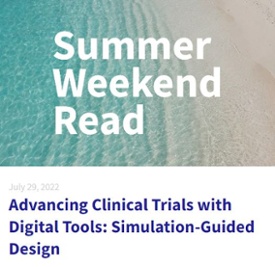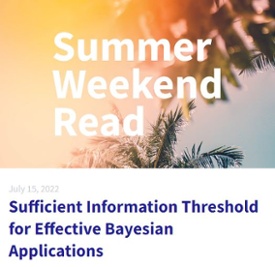The Good Data Doctor on Data Submission and Data Integration


To continue our Summer Weekend Reads series, Cytel presents “The Good Data Doctor on Data Submission and Data Integration” by Angelo Tinazzi, Senior Director of Standards, Systems, CDISC Consulting, and Statistical Programming. Please click below to access the full publication.
For several years, Angelo Tinazzi, a leading global expert on CDISC Analysis Dataset Models and Study Tabulation Models, has written the blog series, The Good Data Submission Doctor, offering his take and reflections on experiences with data submission and data integration. What follows is his eBook detailing some of his most critical insights on clinical data standardization, including:
1. From Before to After: Preparing and Concluding your FDA Data Submission
Planning early discussions with the U.S. Food and Drug Administration is crucial for data submission success, allowing regulatory groups the opportunity to foster the agency’s trust as well as avoid the need for later corrections.
2. In a Virtual Room with the FDA Reviewers
“I attended a virtual meeting with the FDA, a pre-NDA Type-B meeting, as a Data Standards Expert … along with other Cytel employees from the Biostatistics and Strategic Consulting teams …”
3. Watch Out, the FDA Rejection Criteria Are Now in Place
In 2021, the FDA officially implemented the Technical Rejection Criteria, which could spell trouble for submissions if your eCTD fails to meet these new standards.
4. The Importance of Traceability
Traceability is crucial in all steps of clinical data handling, from data collection to final analysis. In CDISC, and particularly in ADaM, this crucial component is continuously stressed upon throughout CDISC documentation.
5. The Integration Dilemma
In 2020, PHUSE released the white paper, “Integration Strategies in Support of ISS/ISE Submissions,” proposing three integration approaches and discussing the pros and cons of each. Which option would you choose?
6. The FDA “Real-Time Oncology Review” Process: An Opportunity & Challenge for Sponsors
The RTOR process has the advantage of pushing sponsors to prepare and be submission-ready early on and presents an opportunity to accelerate product market approval. However, it may increase the burden for both the sponsor and the agency.
To read more, click below to download the full publication:
Read more from the Summer Weekend Read series:
If you'd like updates on our Summer Weekend Read series, sign up for email updates below.








